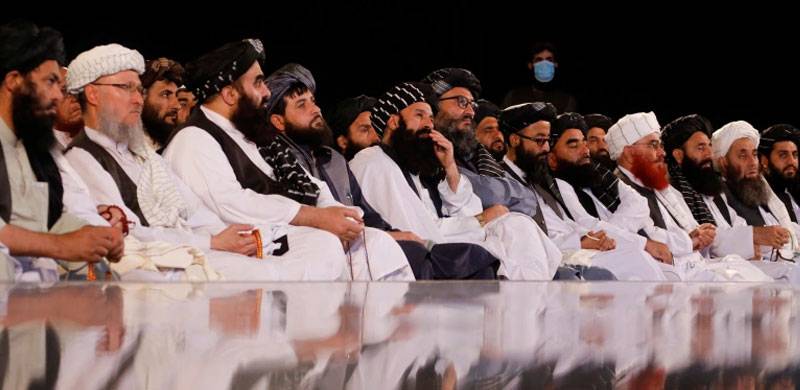
Pakistan would approach the Taliban's interim Afghan government with a fresh demand to deny the banned Tehreek-e-Taliban Pakistan (TTP) and its affiliates any freedom to operate on Afghan soil, well-informed sources have said.
While Pakistan's civil and military leadership has decided to deal sternly with TTP and other terror outfits, the Afghan Taliban will be "asked to cooperate in this endeavor".
There has been a sharp surge in terrorist attacks across Pakistan in recent months. TTP claimed responsibility for more than 140 terrorist attacks in the last three months, including the first suicide bombing attack in Islamabad in nearly eight years. TTP also claimed to have carried out more than 300 attacks during 2022.
The resurgence of TTP has forced the country’s senior policymakers to revisit the "strategic depth" strategy pursued by previous administrations. The high-powered National Security Committee (NSC) recently held prolonged discussions on the issue, and approved a new approach to this challenge.
Pakistan's top civil and military leadership has also decided not to pursue talks with the TTP, and this would be conveyed to the Afghan Taliban. However, while speaking to the media, interior minister Rana Sanaullah said that options to "bring TTP back to the negotiating table" were still being explored. The Afghan Taliban acted as mediators in the Pakistan-TTP negotiations since October 2021, but the Taliban's interim Afghan government refused to evict TTP by force or effectively restrain the terror group's activities.
Islamabad was hopeful that Kabul, under the new regime, would deal with the TTP in a manner that suits Pakistan. But the TTP has regrouped, reorganized and replenished itself since the Taliban takeover in Kabul. Since December 2022, this realization has sent alarm bells ringing in Pakistan's corridors of power.
Multiple sources said the government would deal with the TTP "with full force" inside Pakistan, while the issue of terrorist hideouts across the Pak-Afghan border would be "pursued vigorously" with the Taliban regime in Kabul.
In this regard, sources purported that Pakistan would present a fresh demand based on recent NSC decisions to the interim Afghan government. Kabul would be told in unequivocal terms that "Pakistan wants an end to all terrorist sanctuaries on Afghan soil", failing which the resultant scenarios could "undermine the bilateral relationship".
The Afghan Taliban would be intimated that future cooperation with Islamabad would hinge on Kabul’s commitment to not allow Afghan territory to be used against Pakistan.
Afghanistan's Taliban government recently dismissed Pakistan’s view that the TTP was operating out of their territory, claiming instead that the globally designated terror group was based in Waziristan inside Pakistan. Taliban spokesman Zabihullah Mujahid insisted that the TTP was "an internal problem of Pakistan".
While Pakistan's civil and military leadership has decided to deal sternly with TTP and other terror outfits, the Afghan Taliban will be "asked to cooperate in this endeavor".
Sources asserted that the Afghan Taliban would be given a choice: “either you are with Pakistan, or with the TTP”.
There has been a sharp surge in terrorist attacks across Pakistan in recent months. TTP claimed responsibility for more than 140 terrorist attacks in the last three months, including the first suicide bombing attack in Islamabad in nearly eight years. TTP also claimed to have carried out more than 300 attacks during 2022.
The resurgence of TTP has forced the country’s senior policymakers to revisit the "strategic depth" strategy pursued by previous administrations. The high-powered National Security Committee (NSC) recently held prolonged discussions on the issue, and approved a new approach to this challenge.
Pakistan's top civil and military leadership has also decided not to pursue talks with the TTP, and this would be conveyed to the Afghan Taliban. However, while speaking to the media, interior minister Rana Sanaullah said that options to "bring TTP back to the negotiating table" were still being explored. The Afghan Taliban acted as mediators in the Pakistan-TTP negotiations since October 2021, but the Taliban's interim Afghan government refused to evict TTP by force or effectively restrain the terror group's activities.
The TTP, or Pakistani Taliban, has emerged as a substantive issue of contention between Pakistan and the Afghan Taliban regime.
Islamabad was hopeful that Kabul, under the new regime, would deal with the TTP in a manner that suits Pakistan. But the TTP has regrouped, reorganized and replenished itself since the Taliban takeover in Kabul. Since December 2022, this realization has sent alarm bells ringing in Pakistan's corridors of power.
Multiple sources said the government would deal with the TTP "with full force" inside Pakistan, while the issue of terrorist hideouts across the Pak-Afghan border would be "pursued vigorously" with the Taliban regime in Kabul.
In this regard, sources purported that Pakistan would present a fresh demand based on recent NSC decisions to the interim Afghan government. Kabul would be told in unequivocal terms that "Pakistan wants an end to all terrorist sanctuaries on Afghan soil", failing which the resultant scenarios could "undermine the bilateral relationship".
The Afghan Taliban would be intimated that future cooperation with Islamabad would hinge on Kabul’s commitment to not allow Afghan territory to be used against Pakistan.
Afghanistan's Taliban government recently dismissed Pakistan’s view that the TTP was operating out of their territory, claiming instead that the globally designated terror group was based in Waziristan inside Pakistan. Taliban spokesman Zabihullah Mujahid insisted that the TTP was "an internal problem of Pakistan".

